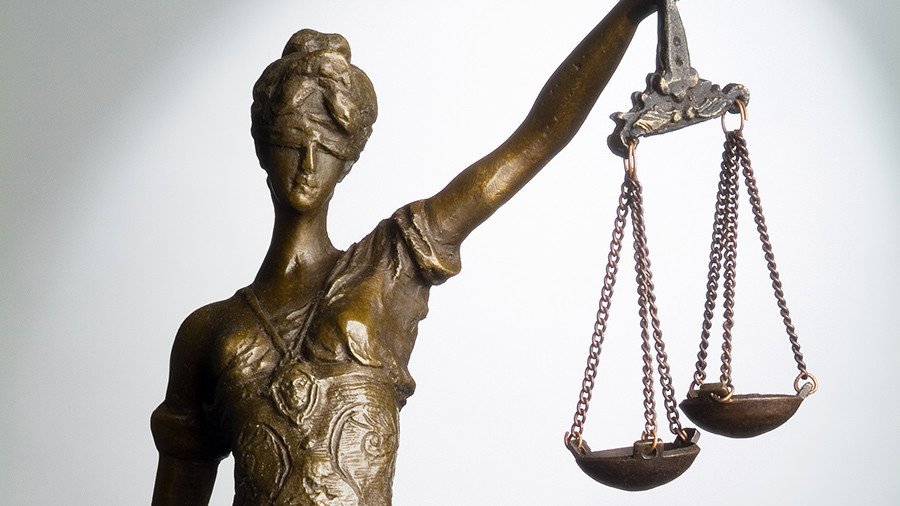$6mn cryptocurrency ‘Ponzi scheme’ leads to federal fraud case

Regulators accuse a Nevada-based cryptocurrency company of misappropriating over $6 million from customers and funneling the money through their family members’ accounts to purchase luxury items.
On Wednesday, the US Commodity Futures Trading Commission (CFTC) announced it had filed a lawsuit against My Big Coin Inc (MBC) founder Randall Crater and Mark Gillespie, who allegedly solicited customers on the company’s behalf.
On January 16, Judge Rya Zobel of the US District Court for the District of Massachusetts charged the defendants with misappropriation of over $6 million from customers and issued a restraining order, freezing their assets.
In their complaint, the CFTC alleges that since January 2014 the defendants misrepresented the value of the company and told customers it was actively being traded on several currency exchanges when it was not.
In 2014, the company posted a tweet that said they had partnered with MasterCard and were “the only cryptocurrency to back your money with gold.”
The only crypto currency to back your money with gold. Sign up today to receive your My Big Coin Visa/MasterCard.http://t.co/Jkm7ZrrNih
— MY BIG COIN (@MYBIGCOIN) March 7, 2014
The defendants even issued a press release that stated the company partnered with TRUCASH to implement a “customized branded prepaid mastercard program” insinuating customers could spend the cryptocurrency anywhere MasterCard was accepted
The defendants also allegedly changed the price of the cryptocurrency “arbitrarily” to make it seem as though it fluctuated in order to entice customers to buy. According to Facebook posts, the company inflated the price of MBC from $23.64 USD on January 23, 2014 to $121.38 USD on November 8, 2014.
A classic version of the My Big Coin website also claims that “any customer with a valid email account” could send or receive money using MBC. However, the complaint states that customers “could not exercise any ownership right in relation to their MBC because they could not trade their MBC or withdraw funds from their individual accounts.”
The defendants allegedly encouraged their customers to keep their holdings in the company and provided additional coins to any customers who raised question about their accounts.
“To the extent any MBC customers received any funds from the defendants, those funds in fact consisted of funds that defendants misappropriated from other MBC customers, in the nature of a Ponzi scheme,” the complaint reads.
In total, the defendants raised $6 million from 28 customers through false claims.
The CFTC accused the defendants of funneling the money they received from customers through Crater’s other businesses, his family members and other “relief defendants,” all of which also had their accounts frozen.
The CFTC accused the defendants of transerfing customers’ money directly into their own personal bank accounts. The money was spent on a $645,000 house, $339,689 worth of jewelry, and $517,719 worth of art from an auction house in Southampton, New York.
“None of the funds obtained from MBC Customers were used to buy MBC for MBC customers,” the complaint reads. “As a result, MBC customers have lost most, if not all, of their funds due to Defendants’ fraud and misappropriation.”
Neither My Big Coin nor Crater’s other companies were ever registered with the CFTC.
Bitcoin price manipulated from $150 to $1,000 by single actor – researchers https://t.co/FF86AviN3cpic.twitter.com/RJOXyF1vfV
— RT America (@RT_America) January 16, 2018
Zobel urged the court to enjoin the defendants from accepting any funds for the purpose of trading commodities or even having commodities traded on their behalf, saying that without restriction the defendants are “likely to continue to engage in the acts and practices alleged in their complaint and similar acts and practices.”
James McDonald, the Director of Enforcement at the CFTC, said the agency is “actively policing the virtual currency markets” and warned other virtual currency customers to “engage in appropriate diligence before purchasing virtual currencies.”
The CFTC has announced two other lawsuits against virtual currency companies last week.
















